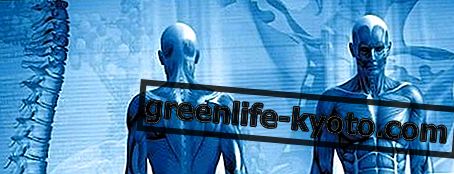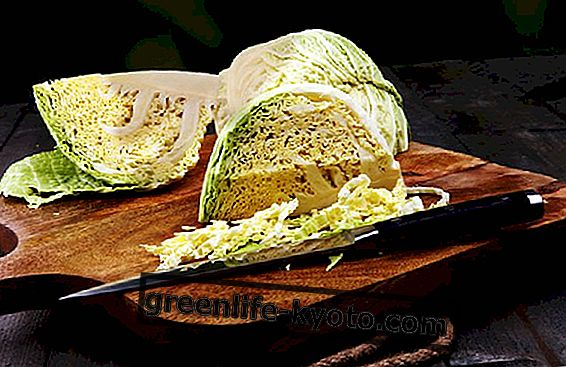Curated by Maria Rita Insolera, Naturopath
Potassium is a mineral salt that is part of the category of macrominerals, or macroelements, that is of that group of five substances (the others are: sodium, calcium, magnesium, chlorine) present in our body in considerable quantities. Potassium is an important mineral and an electrolyte, ie it has an electric charge. The positive charge of potassium allows it to perform all the functions necessary to the body. Every body fluid contains potassium, but 95% is inside the cells.
Bananas among potassium natural food supplements

Properties of potassium supplements
Potassium is very important for the body, in fact:
- It allows the functioning of the muscular apparatus and the transmission of nerve impulses.
- Adjust heart rate .
- It fights excess sodium, which can occur with fluid retention and hypertension. It is important to respect the relationship between potassium and sodium, which should be 5: 1. In all the cellular membranes there is, in fact, a particular structure, called sodium-potassium pump, which allows the cells to let the sodium escape to let the potassium penetrate. This activity is very important for the life of the cell: if the sodium is not pumped outside, the cell can swell with water until it bursts. Moreover, if the potassium remains outside and the sodium inside the cell, the transmission of the nervous stimulus does not take place, made possible by the entry of potassium and by the exit of the sodium. Many tend instead to reverse this relationship, taking in excess salt, which favors hypertension and cardiovascular diseases.
- It allows the passage of nutrients between the inside and the outside of the cells, allowing their vitality and good functioning.
- Regulates the functionality of the kidneys and adrenal glands : potassium helps to expel a substance called citrate to the body. If too much citrate is present in the body, it could bind to calcium and form kidney stones (made up of calcium and citrate). Because potassium helps eliminate citrate, it can reduce the risk of developing kidney stones.
- Potassium helps regulate the quantities of calcium and phosphorus minerals in the blood and prevent the bones and kidneys from eliminating more than they should. In this way, the bones remain dense and strong.
- The electric charge of potassium allows nerve impulses to be sent through the body.
- Potassium also works with another electrolyte, called bicarbonate, to maintain blood pH and acid-base balance in the body.
Potassium food supplements
Potassium is present in almost all foods, in particular they are rich: meat, milk and its derivatives, whole grains, legumes, oil seeds, tomatoes, potatoes, bananas, broccoli, endive, asparagus, carrots, avocado, kiwi, apricots, oranges, apples and dried fruit. Coconut water is also a good potassium supplement: it contains 5 times more than normal sports drinks.
Potassium among natural remedies against heart ailments: discover others

Potassium herbal supplements
In herbal medicine there is a medicinal plant that has potassium regulating properties. It is called the Equisetum (Equisetum arvense). This officinal plant, in fact, among its main constituents in mineral salts has good amounts of potassium. The mother tincture is prepared from sterile stems collected in the summer.
Supplements on the market
Potassium chloride is used to prevent or treat deficiencies of this precious mineral, which is very important for muscle contraction and blood pressure control. In every gram of potassium chloride we find approximately 0.524 g of elemental potassium.
Drugs and supplements of potassium chloride should be taken according to the methods of use specified on the label or in the leaflet, unless otherwise prescribed by a doctor. In general, it is recommended to take it in conjunction with meals, diluting any powder preparations with water or fruit juice, and swallowing those in tablet form without chewing or sucking (avoid going to sleep over the next 30 minutes).
Potassium chloride supplements should not be taken on an empty stomach; for powder formulations, be sure to rinse the glass with water and drink it immediately to take the full dose of potassium chloride.
Daily requirement
The daily potassium requirement varies as follows:
- Infants - 6 months : 400 mg a day
- Children 7 months - 12 months : 700 mg a day
- Children 1 - 3 years : 3 grams (3000 mg) per day
- Children 4 - 8 years : 3.8 grams (3800 mg) a day
- Children 9 - 13 years : 4.5 grams (4500 mg) per day
- Adults - 19 years and over : 4.7 grams per day
- Pregnant women : 4.7 grams per day
- Lactating women : 5.1 grams per day
Following a varied and balanced diet, it is unlikely that a deficiency will occur. A lack of potassium can occur:
- When the diet is insufficient, not very varied or poor in fruit and vegetables.
- In the case of diabetes with hypoglycemia, severe diarrhea, severe physical and mental stress, excessive sweating.
- Following the intake of diuretics, laxatives, aspirin.
In these cases, potassium supplementation is necessary, as a deficiency of this mineral is manifested by fatigue, muscle weakness, excessive thirst, confusion. In the most serious cases arrhythmias and breathing difficulties may occur.












